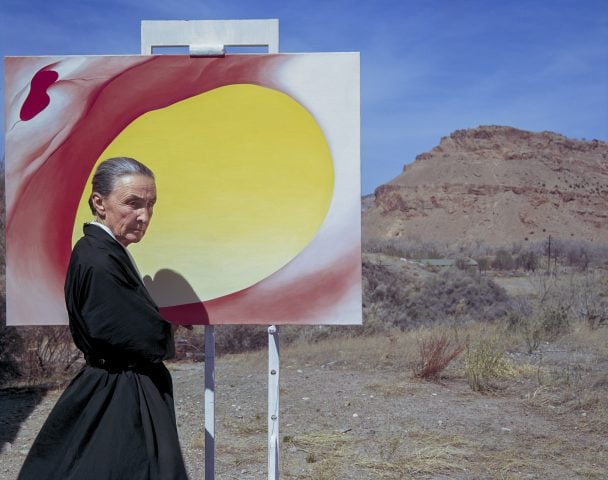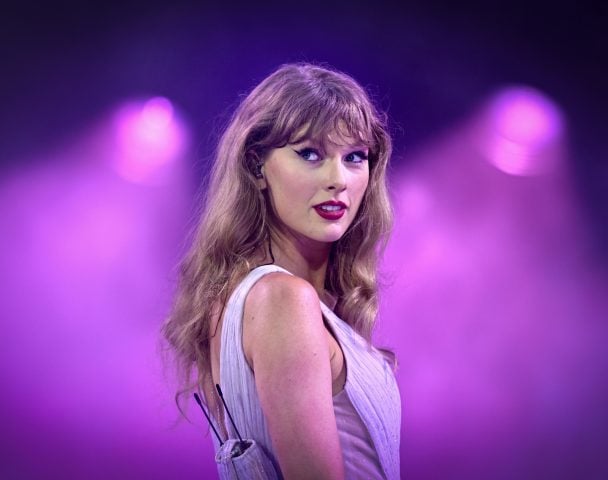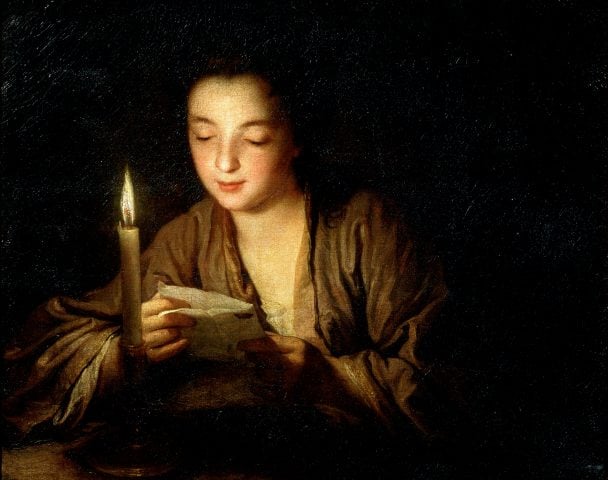Art & Exhibitions
Richard Avedon’s Luminous Photos of Creative Icons Star in Phoenix Museum Show
America’s greatest portrait photographer, Richard Avedon, had a knack for revealing the humanity of larger-than-life celebrities.
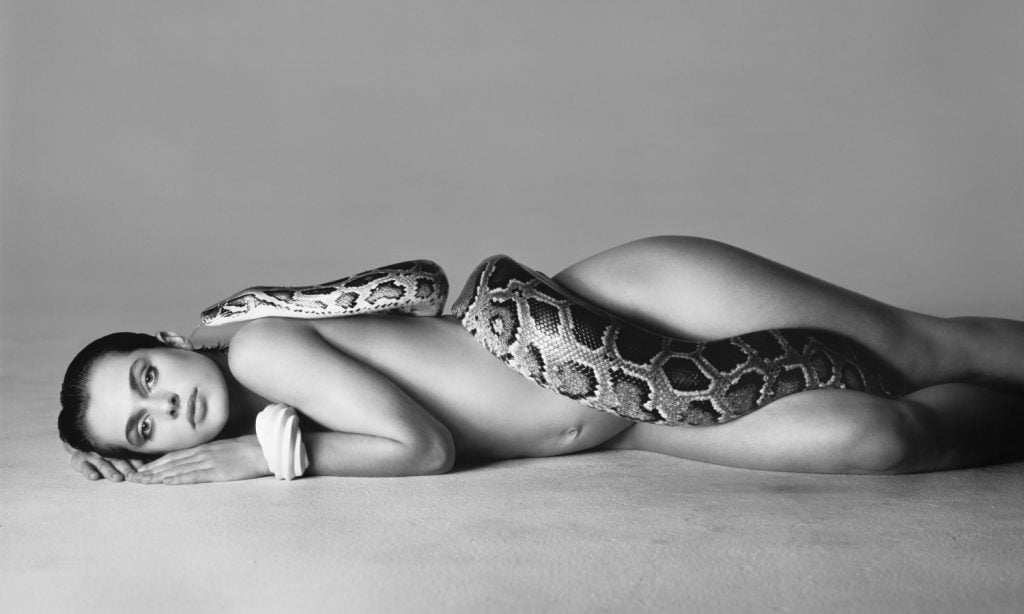
“Dick had put up this huge bubble-jet poster of a sequence of pictures he’d taken of Marilyn in a tight sequined dress,” photographer Tim Walker once wrote of a photoshoot that friend and colleague, Richard Avedon, did with actress and fashion icon Marilyn Monroe.
“One morning the first thing, when I was making the coffee, I observed him standing in front of the poster mimicking all her poses, reliving the shoot in a way—almost asking, with his own body, ‘Did I get all I could?’ And of course he had!”
This anecdote, taken from Walker’s 2018 book Avedon: Something Personal, perfectly encapsulates Avedon’s approach to photographing celebrities and artists—the practice for which he is most often remembered today. Now, 20 years after his passing, Avedon is getting a long-overdue retrospective at the Phoenix Art Museum in Arizona.
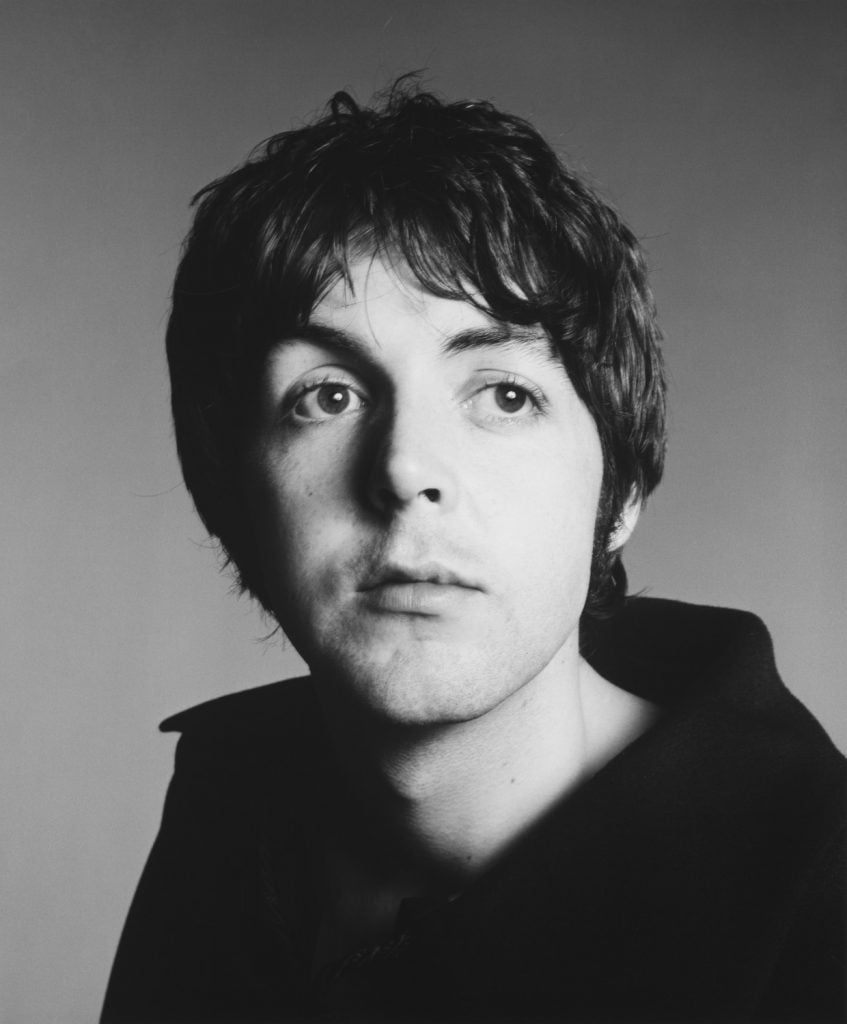
Richard Avedon, Paul McCartney, The Beatles Portfolio, London, England, August 11, 1967. Photo: Center for Creative
Photography, University of Arizona: Richard Avedon Archive. © The Richard Avedon Foundation.
The museum’s new exhibition, “Richard Avedon: Among Creatives,” opened on December 6, 2024, running until May 25, 2025. Curated by Emilia Mickevicius, an art historian who specializes in 20th century photography, “Among Creatives” brings together work from various stages of Avedon’s decades-spanning career, from the early fashion photography he did for Harper’s Bazaar, to the photographic portraits of celebrities like Monroe, which he produced later in life.
Born in New York City in 1923 to Russian-Jewish immigrants who fled the Bolshevik Revolution, Avedon’s artistic career began when he started photographing his sister Louise as she began suffering from schizophrenia. His keen eye for lighting and composition helped land him jobs as a fashion photographer for numerous prestigious magazines, including Vogue, Elle, and—as mentioned—Harper’s Bazaar, leading him to befriend many a rising star.
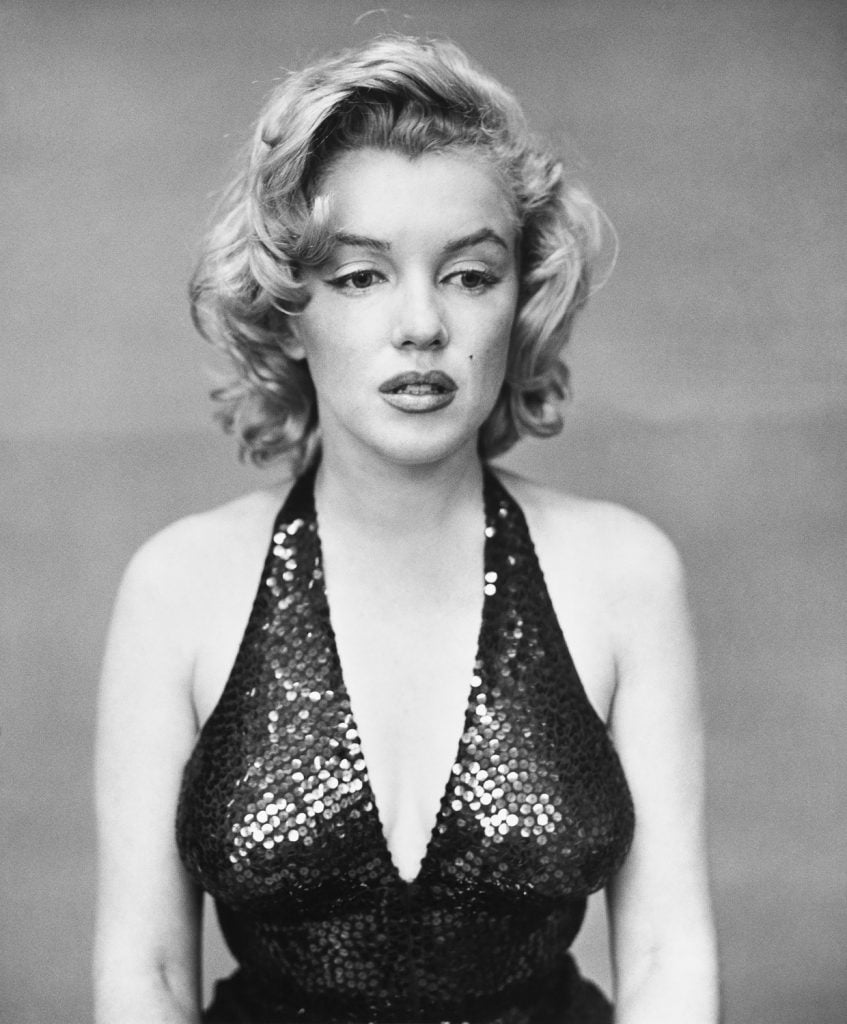
Richard Avedon, Marilyn Monroe, actor, New York, May 6, 1957. Photo: Center for Creative Photography, University of
Arizona: Richard Avedon Archive. © The Richard Avedon Foundation.
Like pop artist Andy Warhol, Avedon was interested in celebrity culture. But where the former depicted his subjects as cultural, consumerist commodities, the latter wanted to capture their humanity. While agents, managers, and publicity firms work to present a consistent, positive image of their client, Avedon captured their inevitable multitudes through his deceptively simplistic portraiture, straying closer to the likes of the Old Masters than to Warhol.
His commitment to authenticity and transparency even carried over into his fashion photography. As Amanda Hopkinson wrote for The Guardian after Avedon passed away in 2004:
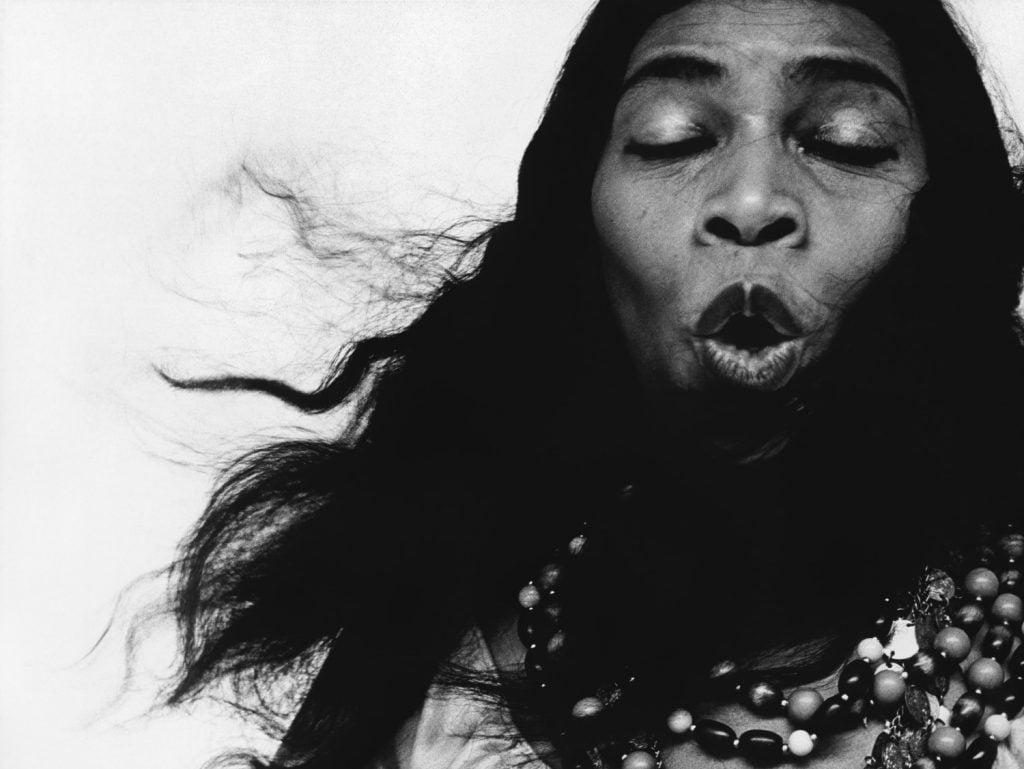
Richard Avedon, Marian Anderson, contralto, New York, June 30, 1955. Photo: Center for Creative Photography, University of Arizona. © The Richard Avedon Foundation.
“Avedon’s own interest was always in the people, never in the fashions. In fact, the models tended to add a layer of complication to what he fundamentally believed was the relationship between photographer and sitter. As he said: ‘A photographic portrait is a picture of someone who knows he (sic) is being photographed, and what he does with this knowledge is as much a part of the photograph as what he’s wearing or how he looks.’”
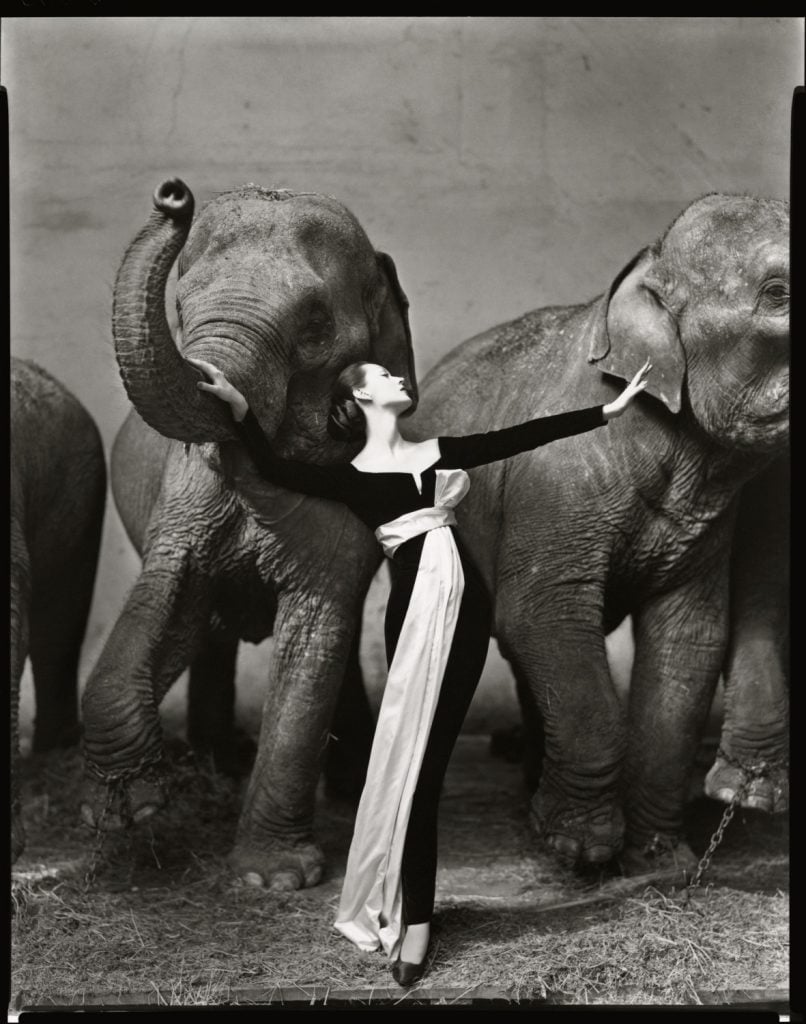
Richard Avedon, Dovima with elephants, evening dress by Dior, Cirque d’Hiver, Paris, August 1955. Photo: Center for Creative Photography, University of Arizona: Richard Avedon Archive. © The Richard Avedon Foundation.
In addition to scrutinizing his approach to portraiture, “Among Creatives” promises to explore how Avedon’s photographs of troubled celebrities like Monroe reflect his own lifelong struggles with fame, mortality, and the demands of his craft.
Aside from Monroe, visitors will get face-to-face with photographs of John Ford, Allen Ginsberg, Marlene Dietrich, Paul McCartney, and Warhol, as well as those of renowned fashion models like Veruschka, Dovima, and Penelope Tree.


